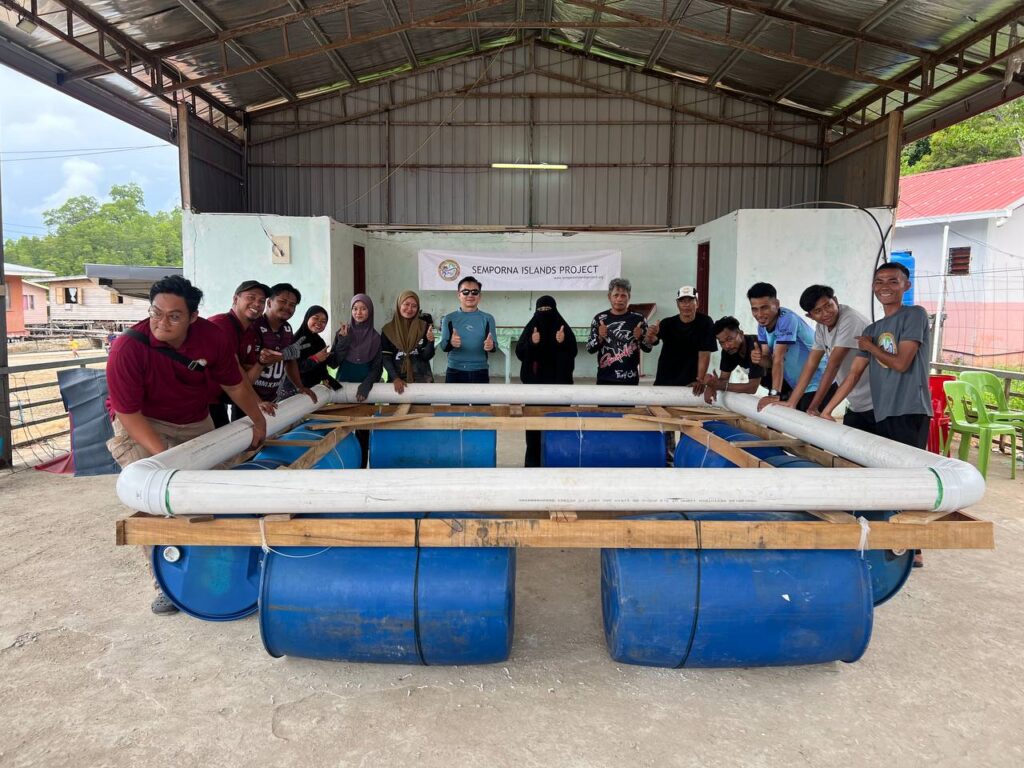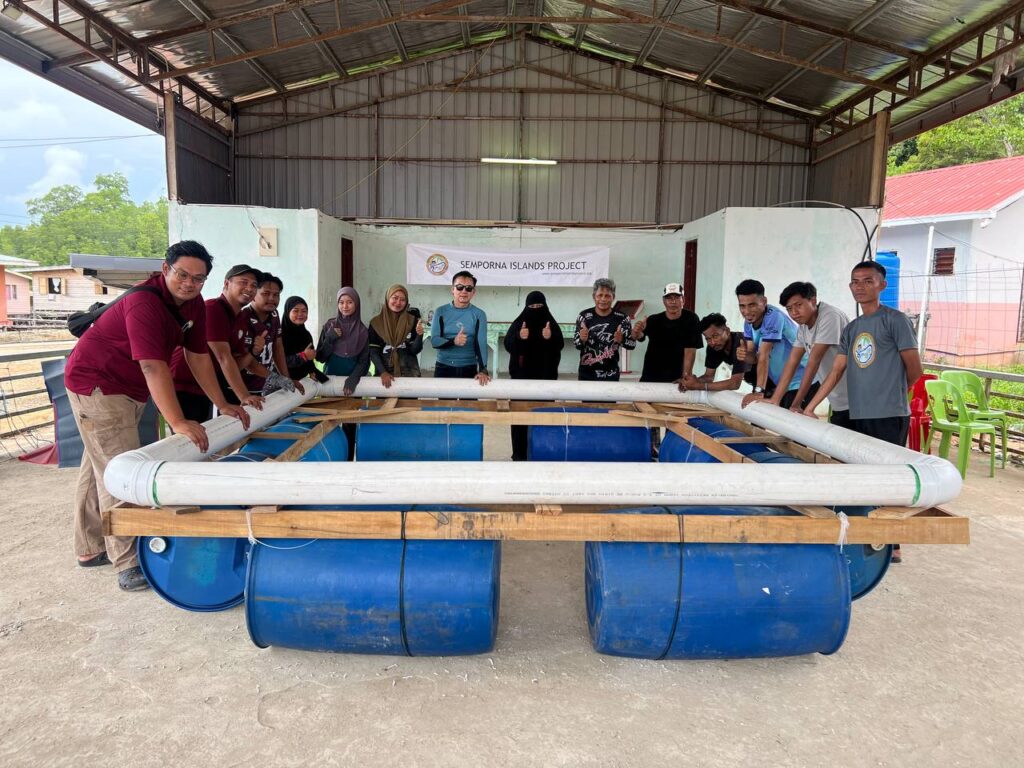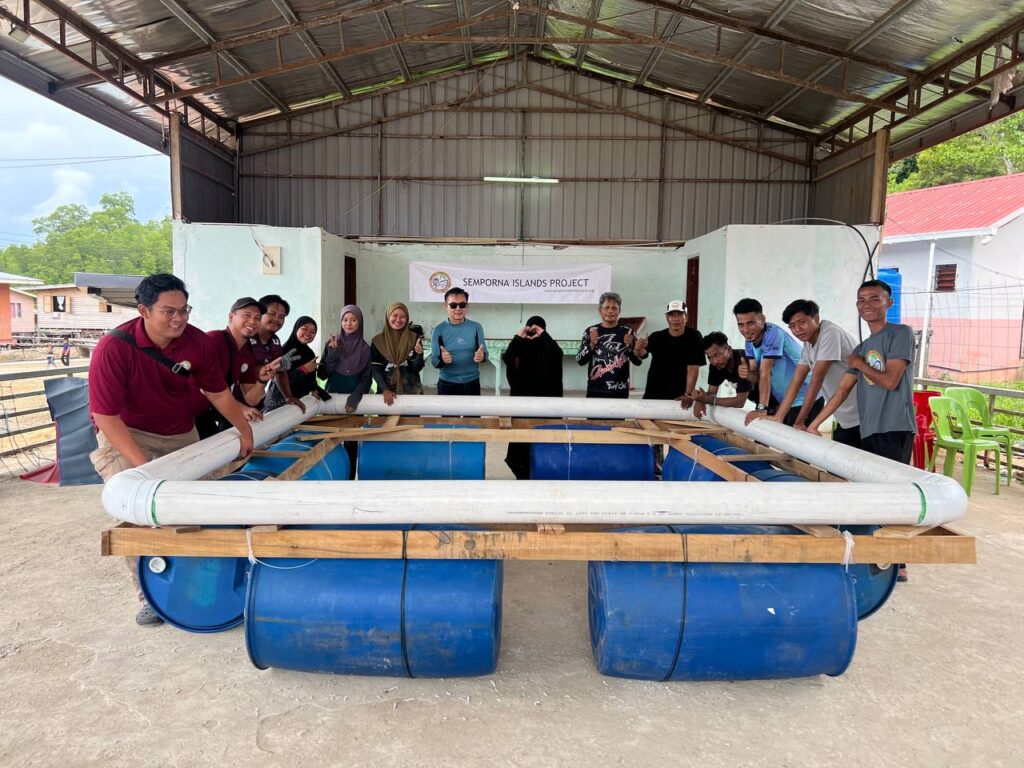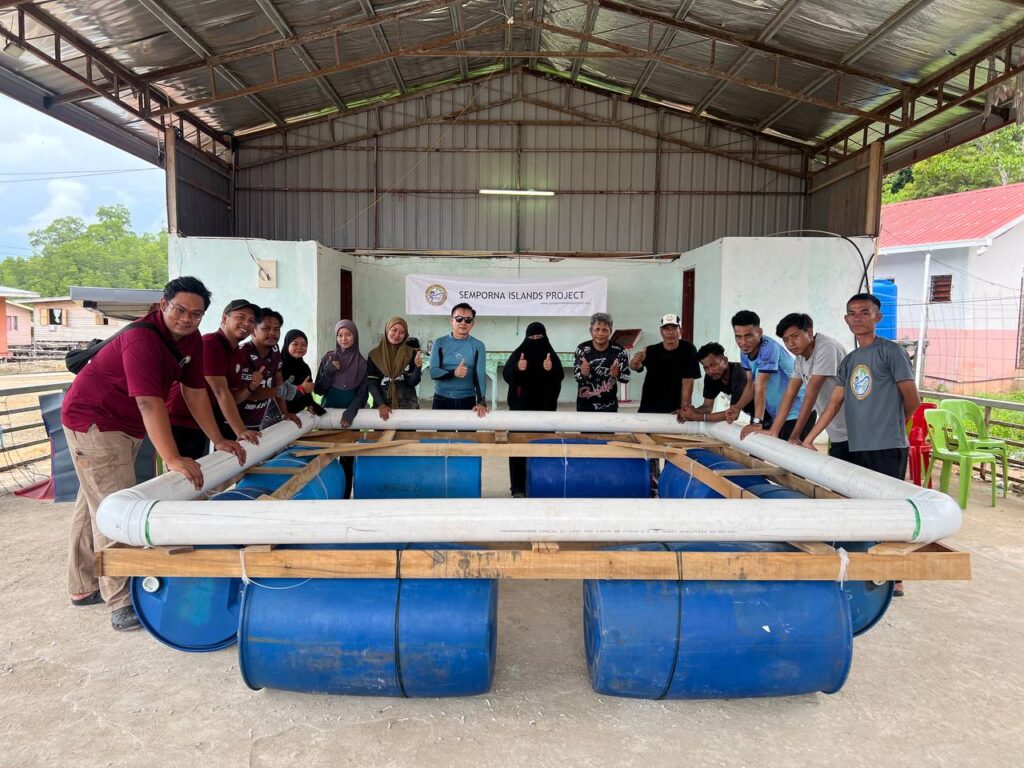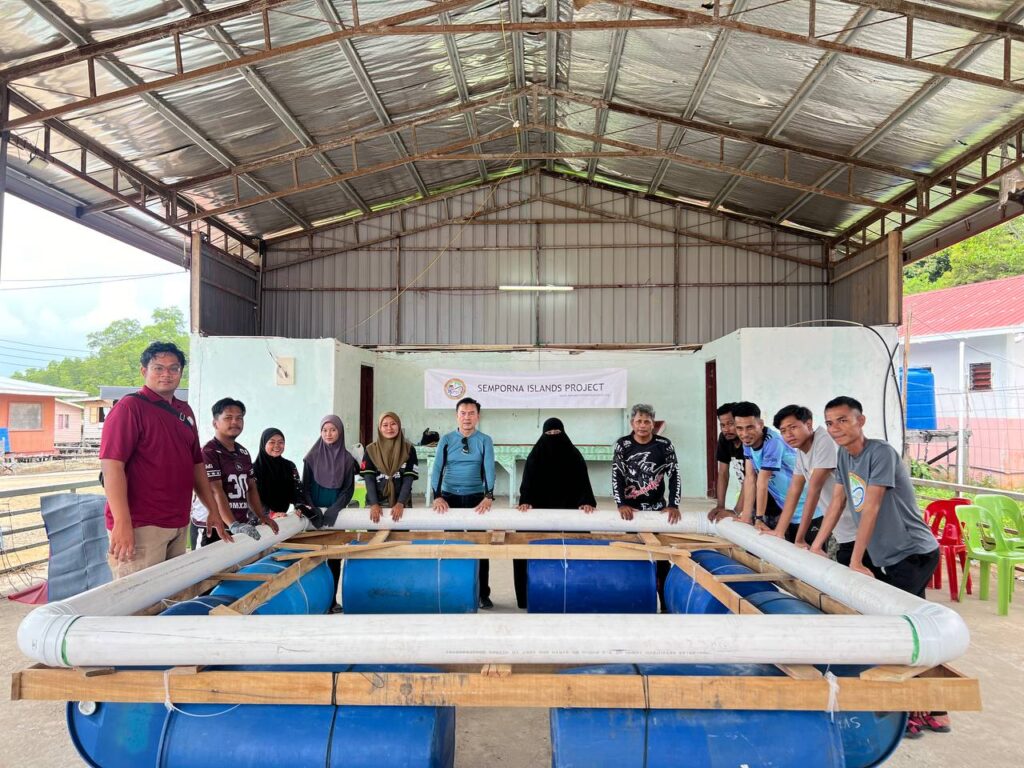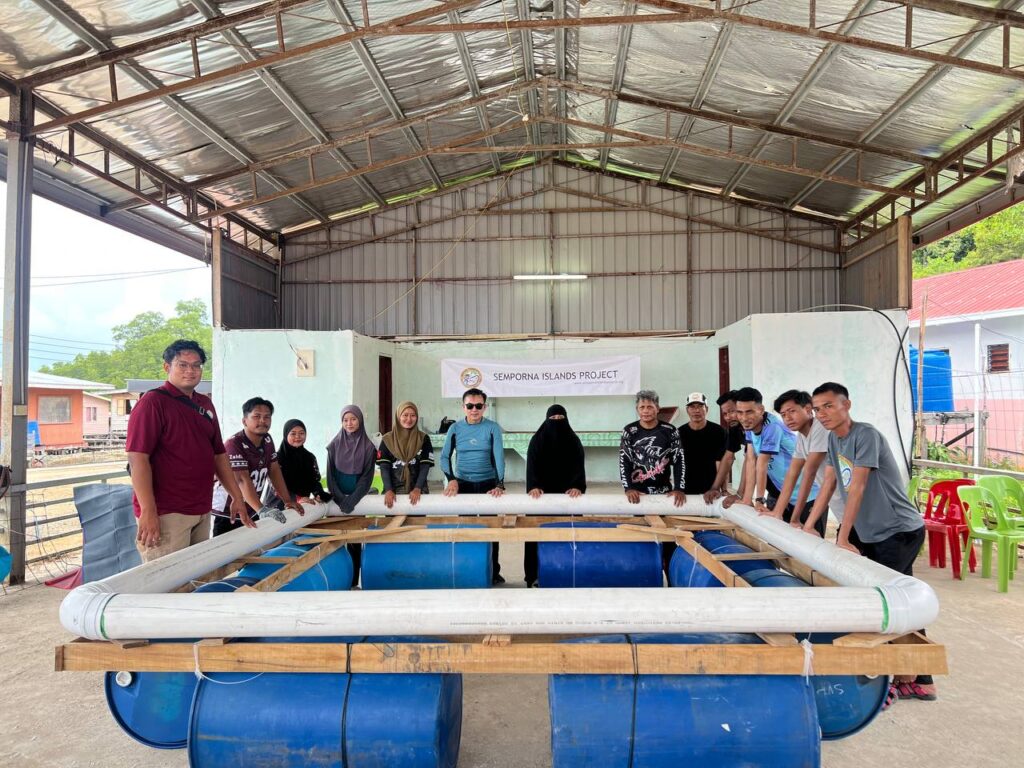Gallery
Building cage with Selakan Island community
Sustainable aquaculture projects, like abalone farming, offer a potential path towards economic diversification and environmental conservation. The SIP hatchery team’s initiative to conduct an abalone cage workshop on Selakan Island signifies a direct effort to empower local communities with the skills and knowledge needed for successful abalone aquaculture.
This workshop involves;
- Practical Training: Demonstrations and hands-on experience in constructing, deploying, and maintaining abalone cages.
- Technical Guidance: Instruction on optimal cage designs, material selection, and site selection to maximize abalone growth and survival.
- Biological Information: Education on abalone biology, including feeding requirements, growth rates, and disease management.
- Business and Sustainability Aspects: Discussions on market opportunities, sustainable harvesting practices, and the importance of environmental stewardship.
Benefits of the Workshop:
The benefits of such a workshop are multifaceted, impacting both the Selakan Island communities and the broader ecosystem:
- Economic Empowerment:
- Diversified Income: Abalone farming provides an alternative livelihood, reducing dependence on traditional fishing, which may be unsustainable.
- Increased Income Potential: Abalone is a high-value seafood, offering potential for higher returns compared to traditional catches.
- Local business development: The acquired skills can be used for the creation of local businesses.
- Environmental Sustainability:
- Reduced Fishing Pressure: Aquaculture can alleviate pressure on wild fish stocks, allowing them to recover.
- Habitat Restoration: Abalone farming can contribute to habitat restoration by promoting the growth of algae, which are essential for healthy reef ecosystems.
- Environmental awareness: The workshop creates more environmental awareness within the local community.
- Community Development:
- Skill Development: Participants gain valuable aquaculture skills, enhancing their employability and entrepreneurial potential.
- Community Collaboration: The workshop fosters collaboration and knowledge sharing among community members.
- Food security: The abalone that is farmed can be used as a source of food for the local community.
- Knowledge Transfer and Capacity Building:
- Local Expertise: The workshop empowers local communities to become self-sufficient in abalone aquaculture.
- Long term sustainability: By teaching the local community the skills needed the project has a higher chance of long term sustainability.
- Improved aquaculture practices: The SIP hatchery team brings improved and efficient aquaculture practices to the local community.
The SIP hatchery team’s abalone cage workshop represents a crucial step towards fostering sustainable aquaculture practices in the Semporna Islands. By equipping the Selakan Island communities with the necessary skills and knowledge, the project aims to create a win-win scenario, benefiting both the local economy and the fragile marine environment.
